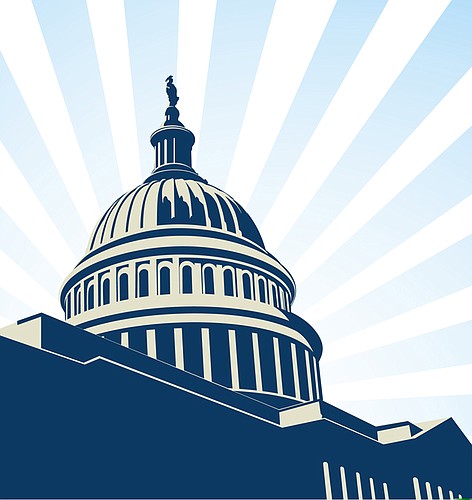Internet tax not dead,
just delayed
There are few people less powerful in state government than a former Speaker of the House who is about to be out of office on term limits. But such a Speaker is going to have a pretty good handle on what is politically possible.
So when Speaker Dean Cannon says he expects an Internet tax to pass the Florida Legislature in the next two to three years, take note.
“It's an absolutely inequitable arrangement,” Cannon told a meeting of the Sarasota Bar last week after the special legislative session on redistricting concluded. “Changing that is a big deal.”
Retailers know the problem. Online sellers normally do not collect sales tax, so they can charge less for their goods. A book at Amazon.com can be cheaper than a book at a brick-and-mortar Barnes & Noble. The same goes for clothes, electronics and pretty much anything else on which sales tax is collected.
Cannon said some uniformity will be required at the federal level as far as what is taxable online, because every state has wildly varying laws. But Florida will be ready to jump on a tax.
“It's coming,” he said matter-of-factly.
But what is not coming is any overhaul of the sales tax system in Florida. That system comes under annual attack because of all the exemptions in it that can look like favoritism to special industries. Cannon pointed out that the exemption for ostrich farms — something often cited as an example of a ridiculous loophole — is meaningless. If the state eliminated the loophole, not one penny would be saved because there are no ostrich farms in Florida. Not one. It was enacted to attract ostrich farms, but obviously failed.
Cannon said a primary area that is not taxed is not taxed is groceries. That sales tax would raise a lot of money for the state, but no one is going to vote for it.
“No comprehensive reform of sales tax is going to happen,” he said.
Pension issue accepted
by Supreme Court
The Florida Supreme Court voted 5-2 to rule on the state's decision last year to require employees to contribute 4% of their income to their retirement plans.
The Legislature passed the pension payment, and Gov. Rick Scott signed it, to help balance the budget and to nudge public employees more toward what the private sector does for employee pensions. Even then, it was a compromise because many legislators wanted to put public employees on the most common private sector retirement plan, the 401(k), because pensions are more generous and costly arrangements for taxpayers to cover.
But the government unions challenged the new law, claiming that it broke an agreement with the union-represented employees. Florida is a right-to-work state, and as such collective bargaining is limited and employees cannot strike.
But Circuit Court Judge Jackie Fulford struck down the law for employees hired before July 1, 2011 — which is pretty much everyone — plus she overturned another part of the law that would have reduced automatic cost-of-living increases for state employees. Fulford asked the Supreme Court to bypass the 1st District Court of Appeal to expedite a decision because of the law's public importance.
The Supreme Court scheduled oral arguments for Sept. 5. If the court overturns the law, it will blow a hole in the budget and probably require the Legislature to return to session look at cutting other areas.
Scott makes NYC case,
then goes national
Gov. Rick Scott went to New York City to meet with the CEOs of New York's 100 largest companies and pitch the benefits of moving their companies to a lower-tax, less-regulation, better-weather state.
However those private meetings went, Scott got a public relations boost out of the trip in part, probably, because national networks are largely headquartered in New York.
Scott was on Fox News' Neil Cavuto show and on CNBC's Squawk Box extolling the virtues of companies moving to Florida.
“If you want jobs to grow, you better make sure your state has the lowest taxes, faster permitting, less regulation, less litigation,” he said on CNBC. “Otherwise you've got to compete with states like Florida and Texas because we're going to do it and make it very difficult for everyone else.”
Scott said companies in Illinois, New York and Connecticut are the easiest targets because those state's have higher taxes and regulations on companies, plus additional income taxes on executives and other employees.
Cavuto tried to make the case that Scott could have gone to other southern states rather than all the way to New York, but perhaps he did not because some of them have lower taxes than Florida. Except no southern states have lower taxes on corporations. Only North Dakota, South Dakota, Wyoming and Montana have lower taxes on corporations and Scott is not relenting.
Then Cavuto went after the real estate market in Florida, which Scott countered with: “You better start hurrying up and buying these homes down here.” The governor then went on to compare the buying power between the states.
After a little more than a year in office, Scott continues to be the CEO-model governor. “It's just like what I did in business, trying to solve your problems,” he said on CNBC. Except he is becoming a smoother public speaker. He's not William Jennings Bryan -- and never will be — but he is no longer painful to listen to on TV.






